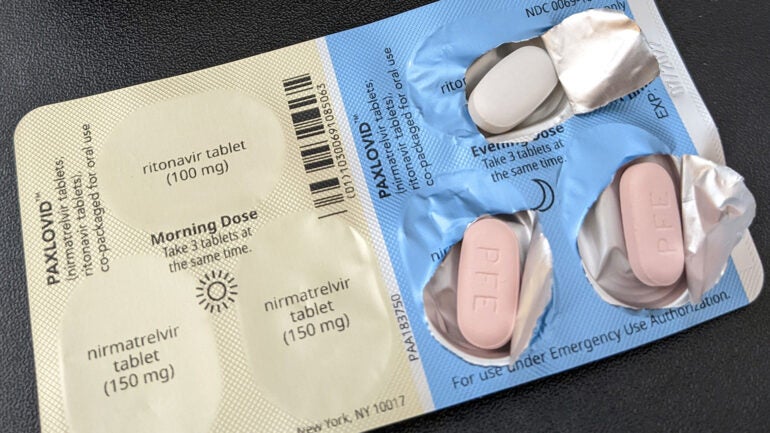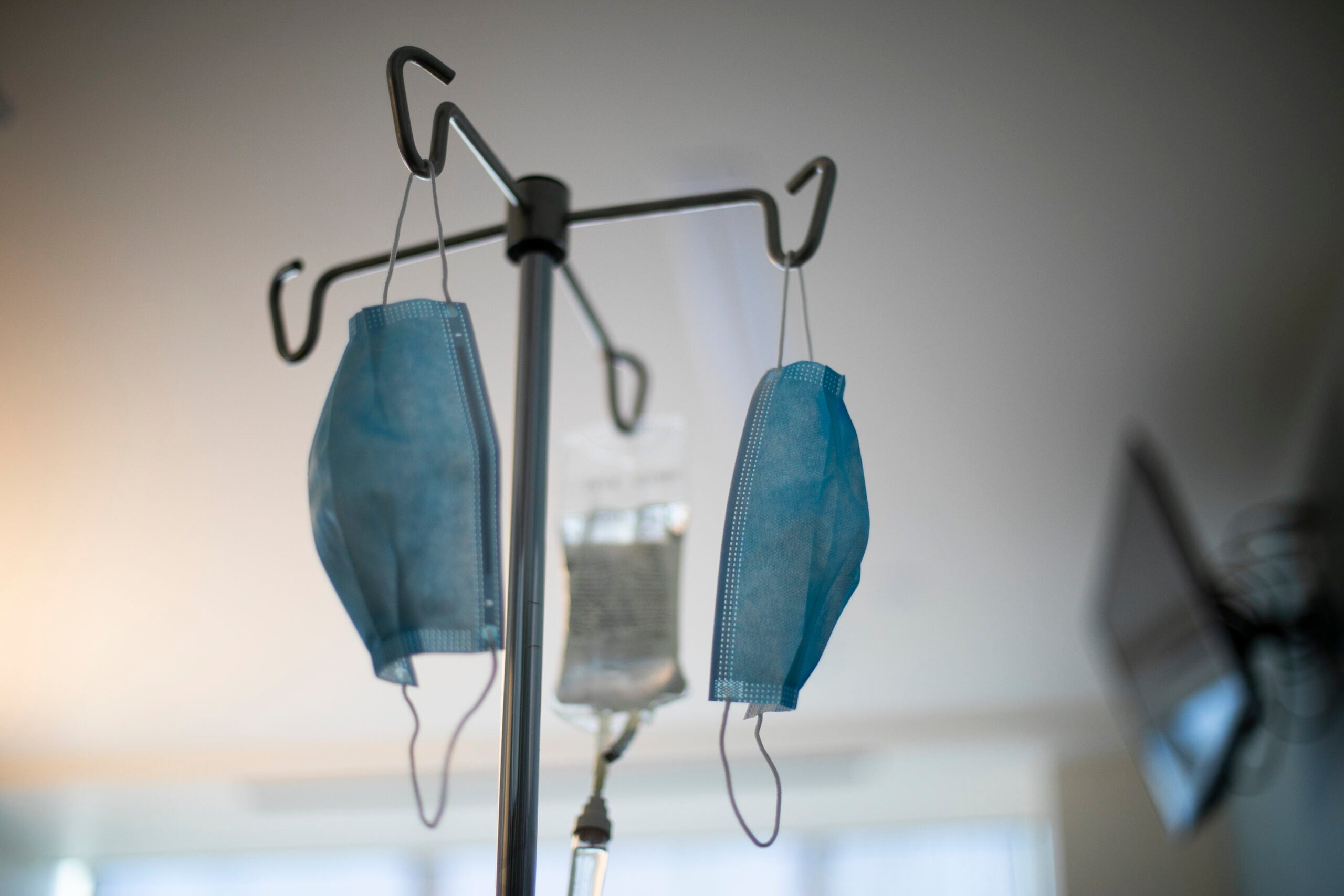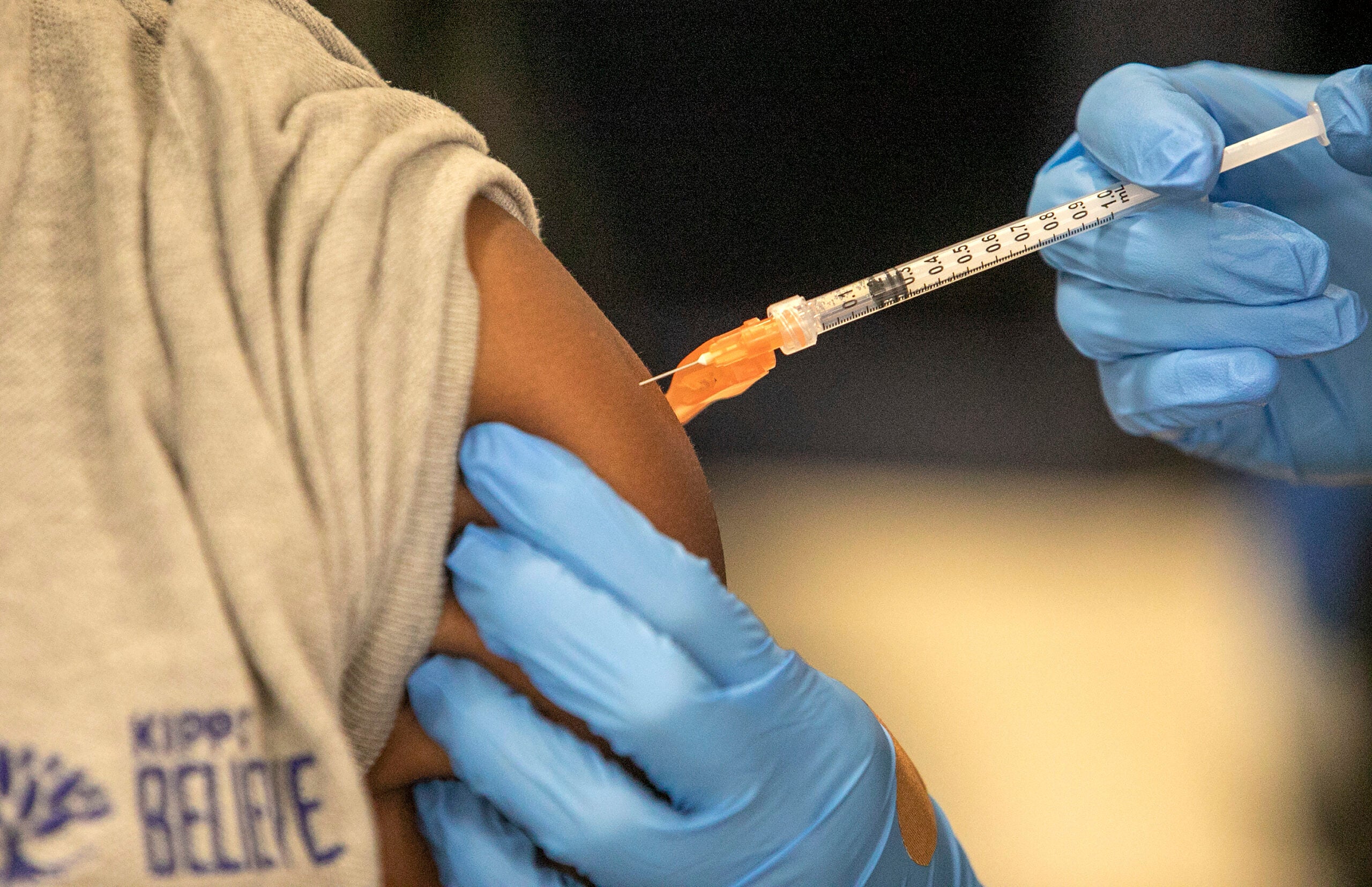University of Wisconsin researchers are among those testing a drug called ruxolitinib to see if it helps severely ill COVID-19 patients with an overreactive immune response.
Researchers around the globe are testing potential COVID-19 treatments to not only boost a person’s immune response to the virus, but to also tamp it down when necessary.
The latter is important because when the immune system goes into overdrive for some patients infected with coronavirus, it causes what’s called a “cytokine storm,” which can be deadly. Cytokines are blood proteins that play a role in preventing the spread of harmful viruses to other cells. When there are too many cytokines, it can damage organs like lungs, making it hard to breathe.
Stay informed on the latest news
Sign up for WPR’s email newsletter.
Ruxolitinib is currently used by doctors to prevent that overreaction for bone marrow transplant patients. Researchers suspect ruxolitinib treatment may prevent or treat multi-system organ failure in patients with COVID-19.
There are more than two-dozen sites testing ruxolitinib for COVID-19 patients worldwide according to Betsy Nugent, chief clinic research officer for the UW School of Medicine and Public Health.
Nugent and David Andes, principal investigator of the Phase lll trial, are working with pharmaceutical manufacturers Novartis and Incyte to test ruxolitinib in the sickest COVID-19 patients.
“I think one of the reasons this is really important is that in the absence of having anything that can really prevent COVID-19 we need to do the best we can in managing the symptoms,” said Nugent.
Researchers were able to start a Phase lll trial quickly and bypass other required steps because ruxolitinib has already been tested for safety in other conditions like graft-versus-host disease, Nugent said.
This is just one drug that researchers around Wisconsin are investigating against COVID-19.
Remdesivir has shown promise in helping patients recover faster from COVID-19. Researchers have also injected patients with plasma from those who have recovered from COVID-19 to see if it gives patient’s immune system a needed boost.
Wisconsin Public Radio, © Copyright 2024, Board of Regents of the University of Wisconsin System and Wisconsin Educational Communications Board.






